The Nollywood Epic That Bit Off More Than It Could Chew. “Stronger Than The Gods,” starring Chimamanda Augustine and produced by Chymelon Movies, is an epic Nollywood release in 2025.
In the pantheon of ambitious Nollywood dramas, few titles carry as much weight—or as many runtime hours—as Stronger Than the Gods. Clocking in at a sprawling three hours and twenty-five minutes, this film isn’t just a movie; it’s a marathon, a high-stakes, spiritual thunderdome where raw human ambition squares off against the very forces of divinity and tradition.
But here’s the million-naira question: Does Stronger Than the Gods stick the landing, or does its immense scope cause it to collapse under its own, self-proclaimed power?
My thesis is this: The movie is a spectacular failure of execution but an absolute triumph of thematic courage. It offers a breathtaking look at the corruption of power and the spiritual evolution of a community, but demands an almost god-like level of patience from its audience due to erratic pacing and technical inconsistencies. This is a film that deserves to be watched, but perhaps not in one sitting.
The Ascent of Okuro: A Deep Dive into Hubris
The film pivots entirely on the magnetic yet terrifying performance of the lead, Okuro (Izokuro), a man so consumed by the desire for the throne that he dares to declare himself “Stronger than the Gods.” This isn’t just villainy; it’s biblical hubris brought to a rural, modern-day setting, a theme that immediately grabs the viewer and refuses to let go.
The Problem of the Antagonist’s Power
Okuro’s journey is painted with broad, bloody strokes. We witness his transition from respected, albeit intense, community member to a maniacal despot. The actor portraying Okuro carries this transition with chilling intensity, often relying on non-verbal cues—the widening of the eyes, the slight, unsettling twitch of the mouth—that perfectly convey the descent into madness driven by power-lust. His performance is arguably the strongest element of the film, elevating what could have been a cartoonish villain into a fascinating study of corrupted authority.
However, the screenplay struggles to make his power credible. His ruthless acts pile up without sufficient political or magical explanation, turning him from a calculating tyrant into a force of nature. While this simplifies the narrative (“evil is just evil”), it robs the audience of the satisfaction of understanding his true strategic brilliance. He becomes a plot engine rather than a fully realized character, eventually relying on cheap spectacle to maintain his threat level.
The Women on the Sidelines: Critique of Supporting Roles
Okuro’s immediate circle—his wife and daughter, Ola—are initially relegated to the periphery. The wife, in particular, serves mostly as the moral compass and later, the weeping victim of his tyranny. While her grief is palpable, her agency is consistently stripped away, making her a frustratingly flat archetype of the suffering woman. This is a missed opportunity for character-driven drama.
Contrast this with the elder, Obi/Obvious, whose cynical wisdom serves as an earthy counterbalance to Okuro’s grand pronouncements. This character, often seen observing from the shadows, provides necessary exposition and the voice of traditional reason, often stealing scenes with quiet, weighty pronouncements about the coming storm.
⚖️ Thematic Crossroads: Gods, Gospels, and Globalism
Stronger Than the Gods is at its most compelling when it grapples with Nigeria’s complex spiritual landscape. The core theme is a triple clash: Okuro’s secular, hyper-individualistic lust for power; the stability and collectivism of the Traditional Elders and their nature-based deities; and the quiet, pervasive emergence of the Christian Faith, represented by the local priest, Father.
Didacticism in the Divine Conflict
The script attempts to handle this massive thematic load, but often stumbles into didactic territory. The conflict between Traditionalism and Christianity is rarely integrated organically into the plot. Instead, it feels like a sequence of sermons or ideological statements stitched between the action. For instance, the Father’s counsel often comes across as a literal reading of scripture intended for the audience, rather than nuanced advice offered within the world of the story.
The film excels when it shows the struggle, not when it tells it. A powerful scene, where a community ritual is interrupted by Okuro’s brutality just as the Father arrives to offer comfort to the wounded, provides a brief, brilliant glimpse into the chaotic overlap of these spiritual systems. If the entire film had operated at this level of subtext, its thematic resonance would have been profound. As it stands, it’s a brilliant idea intermittently executed.
The Epic Grind: Pacing and Production Reality
The three hours and twenty-five minutes running time is not just a detail; it is a central character in this movie. In the editing room, it appears the filmmakers adopted the principle: Why cut when you can linger?
The Pacing Paradox
The result is a frustrating pacing paradox. Key, dramatic moments—such as Okuro’s first major act of blasphemy—are rushed, leaving little time for the audience to process the shock. Conversely, minor scenes—such as long, silent walks through the bush, or repetitive council meetings—are stretched into laborious minutes. This imbalance undermines the emotional impact of the truly epic sequences. An aggressive trim of at least 45 minutes would have sharpened the narrative thrust and transformed the film from a grueling watch into a riveting experience.
Special Effects: When Visuals Betray the Vision
Being an epic, Stronger Than the Gods relies heavily on the visualization of supernatural power. Here is where the film’s ambition truly outpaces its technical capabilities. The use of special effects, intended to show traditional charms or curses in action, often feels dated and distracting. In one crucial scene involving a supernatural fog, the visual quality breaks the audience’s immersion entirely.
While Nollywood is known for resourcefulness, a film making such bold claims about power and divinity demands polished visual language. The less the effects were shown, and the more they were implied through atmospheric lighting and sound design, the stronger the scenes became.
The Sound Design and Score, however, are a notable highlight. The percussive, dramatic score effectively amplifies Okuro’s menace and the community’s terror, using traditional African instruments and powerful drums to underscore the emotional weight of the conflicts. The soundscape almost single-handedly shoulders the burden of establishing the epic mood that the visuals sometimes fail to achieve.
The Unlikely Savior: Ola’s Unearned Power
The final act introduces the ultimate narrative device: Okuro is defeated not by the combined traditional forces or the new faith, but by his own daughter, Ola, who is revealed to be the “true keeper of a new power/era.”
A Convenient Plot Device
While having the villain defeated by his own blood has powerful dramatic potential, Ola’s ascent feels frustratingly unearned. Throughout the majority of the film, she is a passive observer. Her sudden acquisition of power in the final moments is a classic example of a deus ex machina—or, more appropriately, a dea ex filia.
The film positions this moment as a profound spiritual shift—the new generation taking over, perhaps combining the best of the old traditions with a purified, selfless sense of authority. This is a brilliant idea, symbolizing the evolution of Nigerian society beyond the corrupting influences of unchecked masculine ambition and religious rigidity. But because Ola’s development arc is so truncated, the emotional resonance of her victory is intellectual rather than visceral. We understand why she must win thematically, but we don’t feel the dramatic catharsis of her struggle. The narrative needed to sow the seeds of her power, or her destiny, far earlier than it did.
Conclusion & The Final Verdict
Stronger Than the Gods is a messy, sprawling, and undeniably fascinating spectacle. It’s a film that attempts to capture the entire spiritual and political zeitgeist of its setting, resulting in a product that is equal parts frustrating and brilliant.
The film’s strengths lie in its fearless thematic inquiry into power, its compelling lead performance by Izokuro, and a powerful, atmospheric score that guides the emotion. Its weaknesses are its undisciplined pacing, reliance on dated technical effects, and the underdevelopment of its ultimate hero, Ola.
For serious Nollywood observers, this film is essential viewing simply for its sheer scale and the courageous questions it poses about authority, faith, and transition. For the casual viewer, prepare to be captivated by the story but challenged by the runtime.
It’s an admirable failure of filmmaking, but a successful statement on ambition.
Should you watch it? Yes, but grab a friend and a strong cup of coffee.
Critical Rating:……………3/ 5
Did you agree with our take on Okuro’s descent? Let us know in the comments below, or tell us which scenes you think should have been edited out!
#NollywoodTimes
#StrongerThanTheGods
#NollywoodEpic
#HubrisUnleashed
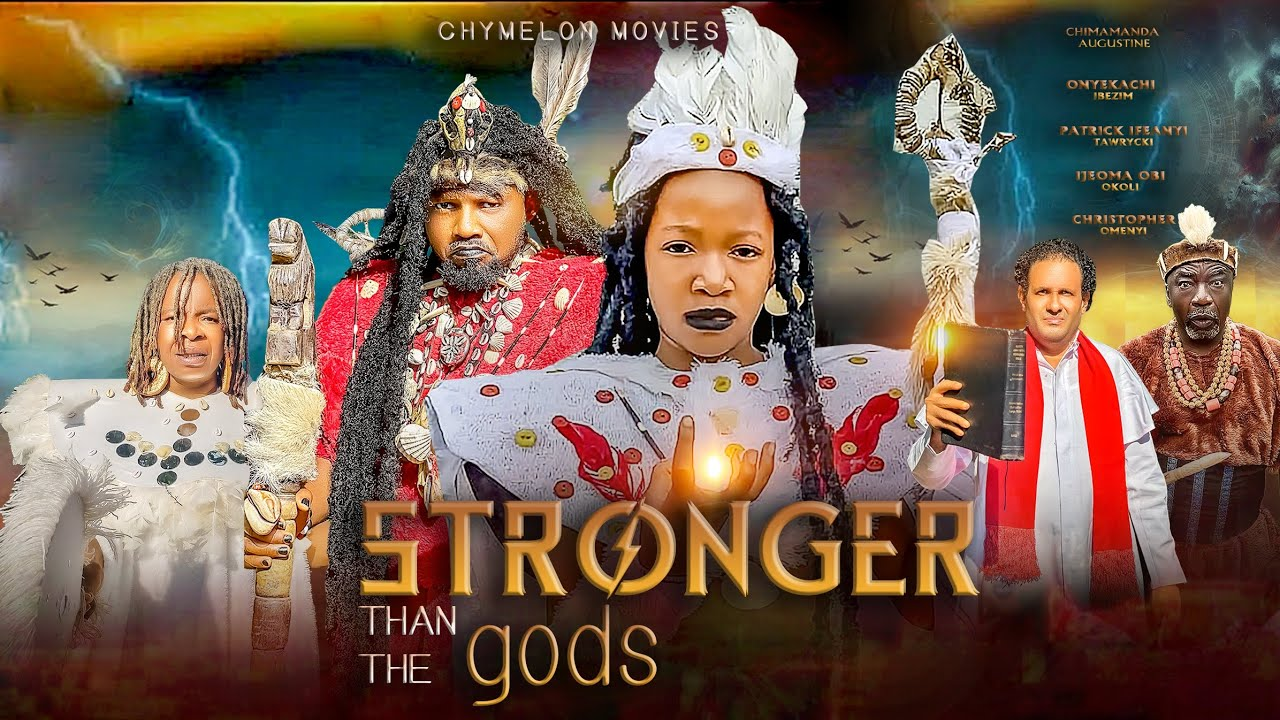

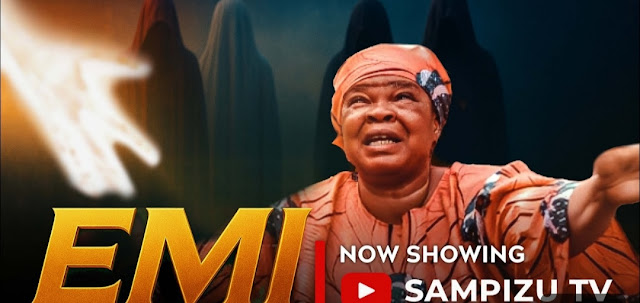
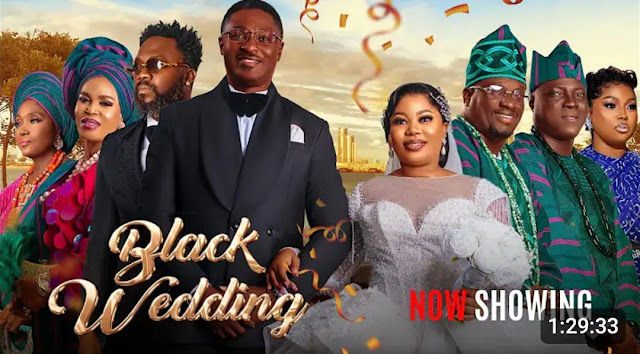
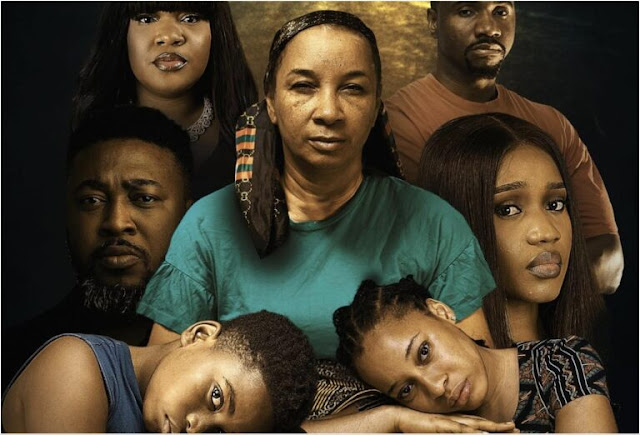
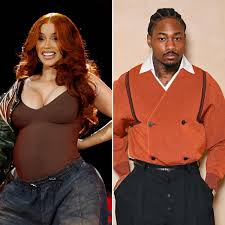

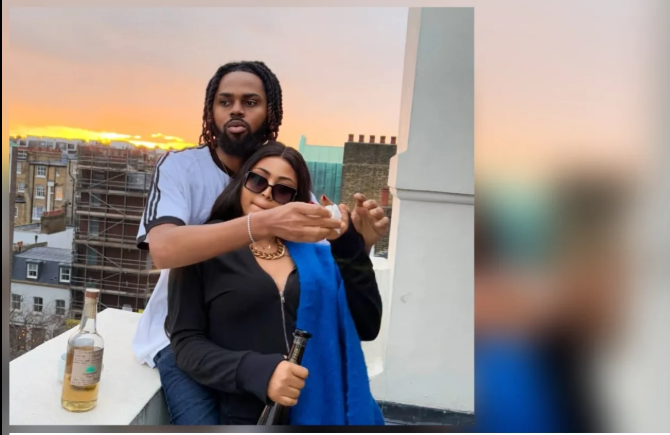

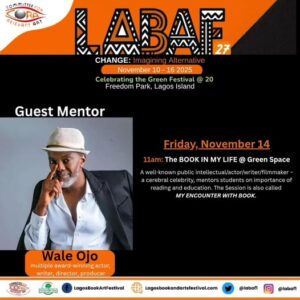


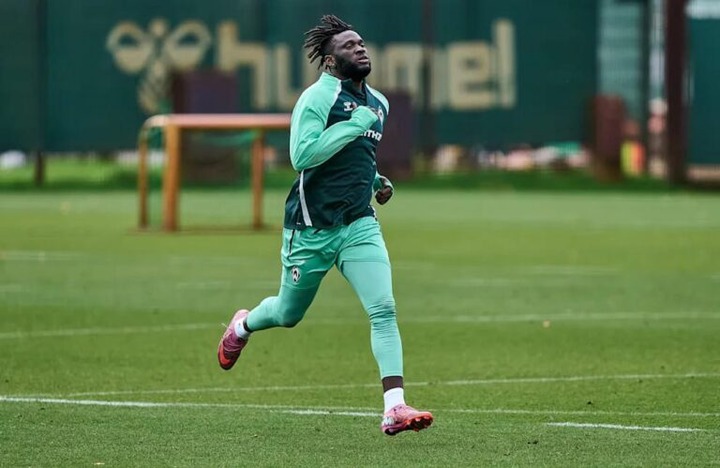
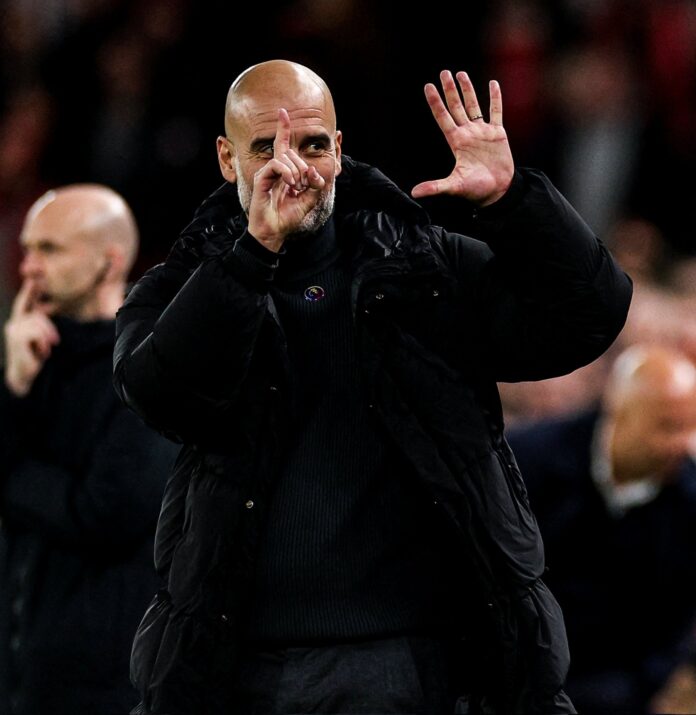
Leave a Reply